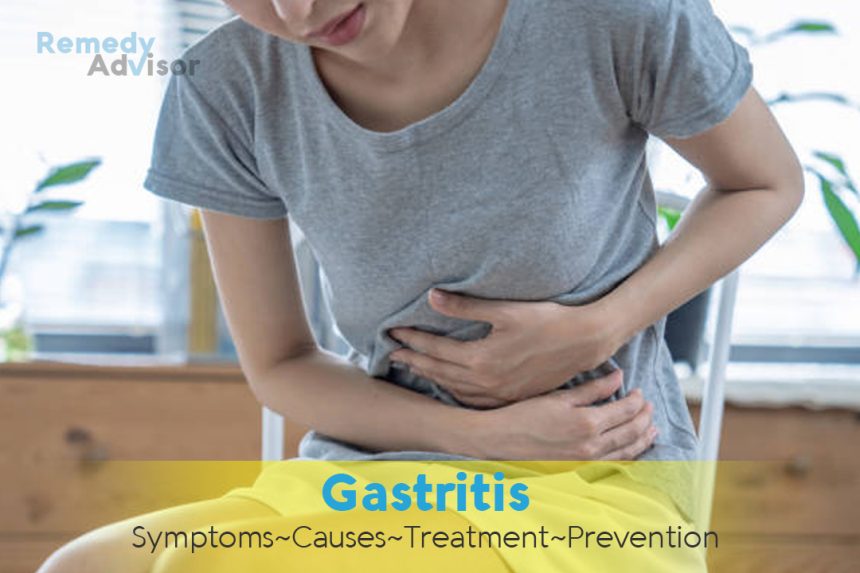What is it
Gastritis is a common health term for any kind of swelling, mild irritation or infection of the stomach lining. Acute gastritis occurs as a sudden attack that can last from a few hours to a few days. Chronic gastritis, which is fairly common among the elderly, can develop over a long period and may produce similar symptoms or only mild discomfort, along with loss of appetite and nausea.
Symptoms
- Abdominal discomfort or pain under the rib cage.
- Nausea, occasionally with vomiting, that may last 24 to 48 hours.
- Loss of appetite.
- Swollen abdomen.
- Vomiting blood (infrequent, but requires immediate attention).
What causes it
Gastritis has many possible causes. Infection with Helicobacter pylori, the bacteria that causes most ulcers, is the most common cause of acute gastritis. The condition can also be triggered by any substances that irritate the stomach lining. These include anti-inflammatory drugs, such as ibuprofen, aspirin, and arthritis medications, particularly when these drugs are used over the long term. Many other prescription and over-the counter medications may also irritate the stomach lining, as can tobacco smoke, alcohol, and foods that you have trouble digesting.
Gastritis may also be caused by stress and anxiety, which triggers stomach acid production.
Chronic gastritis can be caused by prolonged irritation of the stomach by alcohol, tobacco smoke, and medications; by bile and other acids that back up into the stomach; by pernicious anemia, an autoimmune disorder that can damage the stomach lining; and by degeneration of the stomach lining with age.
What if you do nothing
Mild cases of acute gastritis are often self-limiting and will clear up within two days. However, any instances of severe acute gastritis or chronic gastritis should receive medical attention to avoid complications.
Home remedies
Most cases of mild gastritis respond well to the following self-care measures within 48 hours.
Don’t eat
Fast for 24 hours afterward the gastritis attack starts; you need to drink water as well as nonalcoholic drinks. The following day, start to eat lesser meals that consists of bland foods like cooked vegetables, rice, applesauce and toast which shouldn’t bother your stomach.
Elude all products that consist of anti-inflammatory drugs like as ibuprofen or aspirin
They are very harsh on your stomach.
Take nonprescription antacids or acetaminophen for stomach pain
Follow your doctor’s orders or the label directions. Stop smoking and abstain from alcohol and caffeine for as long as you have symptoms.
Prevention
Know your medications
If you must take a medication that ends up irritating your stomach, ask your physician about taking an enteric form. Enteric pills have a special coating that allows them to pass un-dissolved directly from your stomach to your small intestine. In some instances this may help ease gastritis symptoms.
Keep a food diary
Certain spicy, fatty, or fried foods may trigger your gastritis. Cut back or eliminate them from your diet.
Eat frequent, small meals
This may help reduce any large acid buildup in the stomach.
Quit smoking; reduce or eliminate alcohol intake
These are two common causes of both acute and chronic gastritis.
Try to minimize stress
If stress is a cause of your gastritis, try to figure out what is causing the stress in your life and what changes you can make to reduce it.







